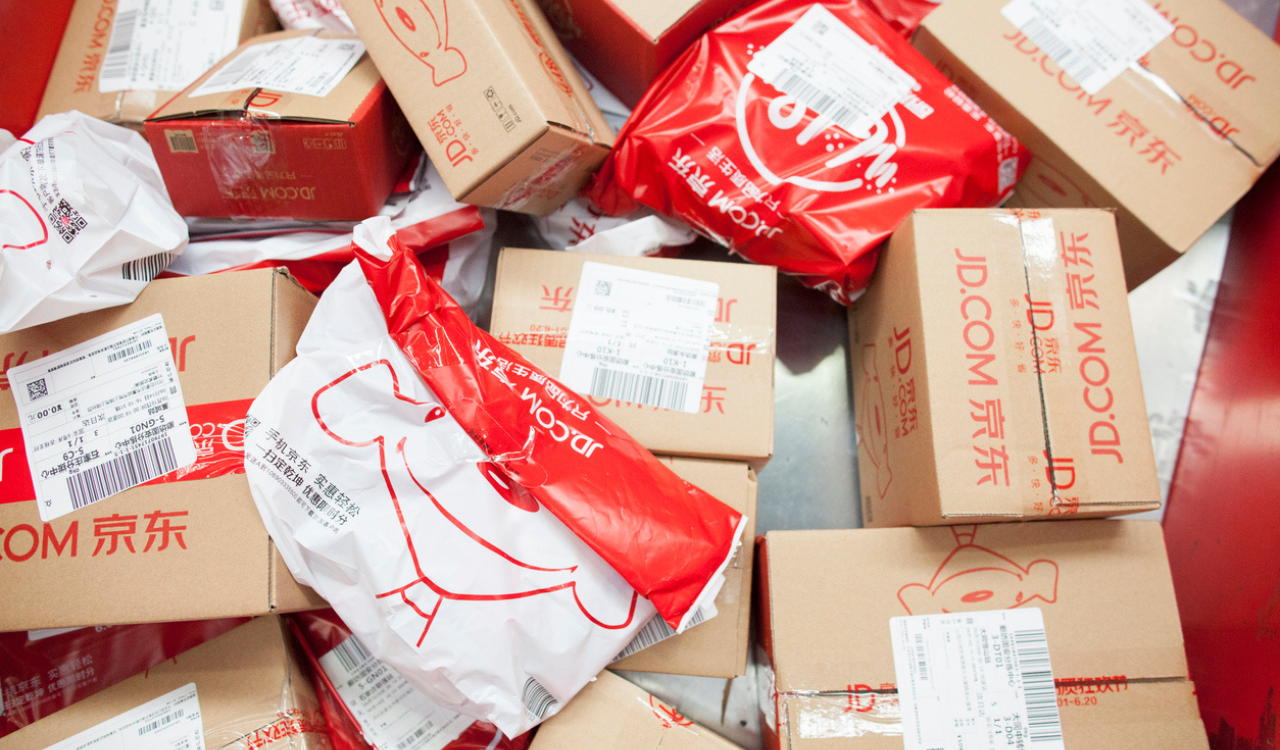Here’s a news dispatch from around the world. In a move that is probably no surprise to anyone watching the global headlines, the growing international ambitions of the Chinese, specifically online giant JD.com, could reshape the consumer electronics retail sector in Europe. In a recent move, JD.com has launched a takeover offer for Ceconomy, the parent company of German retail giants MediaMarkt and Saturn, in a deal valued at about $2.5 billion. The deal is expected be completed in the first half of 2026. Out of the gate, this positions JD to challenge Amazon’s dominance in Europe’s consumer electronics market.
The consumer experience is no longer defined by stores but by expectations shaped elsewhere thanks to the speed, convenience and frictionless service of digital platforms. The question we always ask is: What desire can we fulfil? It’s about experiencing electronics, not just completing a transaction.
Chinese Ambitions
Ceconomy is number one or two in 9 out of its 11 operating countries and additionally its marketplace offer is available in seven countries. MediaMarkt-Saturn serves 50 million loyalty card customers and records about 2.2 billion customer interactions annually. Its annual revenues total roughly $24 billion, making it the dominant player in European consumer electronics. As part of the agreement, JD.com and Ceconomy have pledged to retain the MediaMarkt and Saturn brands, keep its corporate headquarters in Düsseldorf, Germany, maintain the existing workforce, and retain co-decision making for an agreed-upon period
JD’s move is not just an acquisition but a bid to marry Chinese state-of-the-art digital logistics, supply chain efficiency, and data infrastructure with Europe’s largest consumer electronics retailer. It also represents a bold intervention in a retail landscape that MediaMarkt-Saturn’s Chief Executive, Kai-Ulrich Deissner, characterizes as “structurally challenged.” He adds, “Traditional retail is broken,” speaking at the National Retail Federation’s debut European event in Paris this September. “But this presents an opportunity to embrace and fix the sector rather than view it negatively.”
Brand Evolution
MediaMarktSaturn has been stepping away from its traditional product-focused identity to become what the company describes as a customer-centric service platform. Deissner has banked on innovative store concepts with high-level service, a focused assortment curated by location, and digital tools that enhance the shopping experience, notably superfast 90-minute delivery service.
The retailer is banking its future on its Lighthouse concept, designed as an experience space. By the end of the 2025/26 financial year, more than 750 of the group’s approximately 1,030 stores should have at least one experience space and there should be up to 20 Lighthouse stores in Europe. Flagship formats include live experiences, services and broad assortments that epitomize the new customer-first approach.
Looking ahead, Deissner argues the consumer experience is no longer defined by the stores themselves but by expectations shaped elsewhere thanks to the speed, convenience and frictionless service of digital platforms. “Space-as-a-service is an important strategic growth area for us, enhancing the in-store shopping experience and creating additional experiences with constantly changing themes and innovations,” he said. “Our customer experience is increasingly shaped by what people encounter elsewhere — convenience, zero patience, mobile-first solutions. The question we always ask is: What desire can we fulfil? It’s about experiencing electronics, not just completing a transaction.”
The Experiential Way
In outlining the company’s future direction, Deissner identified five growth priorities: expanding services and solutions, developing a marketplace for third-party sellers, investing in private labels, experimenting with space-as-a-service concepts, and building a retail media network. He cited the company’s Hamburg, Germany flagship, where an entire floor is dedicated to free gaming experiences, as a glimpse of the experiential future he envisions.
“We will not close stores. We believe in our investment,” he said, adding that MediaMarkt-Saturn has now delivered 10 consecutive quarters of growth in both revenue and profit. The JD transaction, Deissner suggested, offers a way to accelerate that momentum, as he described the share offer as a “complicated and sensitive process” but one that he believes will bring tangible benefits. “This means we will gain access to their supply chain. Our focus is always on what this means for the customer,” he said.
Bridging the Tech and People Gap
Deissner’s insistence that retail must be experienced rather than merely transacted hints at the philosophical shift underpinning the partnership. His emphasis on people, service and sensory engagement contrasts with the algorithmic precision of JD’s ecommerce engine and the alliance, in a best-case scenario, could bridge those worlds — bringing Chinese supply-chain scale to European main-street culture.
JD’s logistics expertise could also slash inventory costs and improve delivery speeds, while MediaMarkt-Saturn’s store network offers JD a dense network of pick-up points, showrooms and service hubs across Europe. That combination could create a model for omnichannel retail that rivals Amazon’s and could also allow JD to extend its private-label electronics into the European market, leveraging MediaMarkt’s deep customer relationships and local trust. “We have found a partner that will help us accelerate and achieve that,” Deissner declared of the potential benefits of the takeover.
Domestic Challenges
Indeed, for JD.com, the acquisition provides an instant footprint of over 1,000 stores across 11 European markets, a reach that would have taken years and billions of dollars to replicate organically. The deal also gives JD a powerful test lab for integrating its advanced logistics, artificial intelligence capabilities, and data-driven personalization into a mature Western retail network, positioning JD to challenge Amazon’s dominance in the region’s consumer electronics market.
The risks, however, are considerable. European consumer electronics is a notoriously low-margin business, dependent on promotional cycles, product innovation, and discretionary spending. Integrating technology systems, supply chains, and management cultures across 11 jurisdictions, each with distinct labor laws and consumer behaviors, will add further complexity.
Plus, the geopolitical backdrop remains challenging. Large-scale Chinese investment in critical European retail and data infrastructure is likely to draw continued political and regulatory scrutiny and Germany’s Federal Ministry for Economic Affairs retains the power to intervene on national-security grounds, even after the deal is completed.
Still, the transaction marks one of the most significant foreign investments in European retail in years. For JD, it offers a chance to showcase the efficiency of its logistics network, now among the most sophisticated in the world, within a traditional retail context. For MediaMarkt-Saturn, it promises the injection of capital, technology and operational agility needed to compete in an era when online expectations are shaping in-store behavior.
Beyond China
The move may also reflect increasing heat in JD’s domestic market. While competitor Alibaba has focused on diversifying its platforms and rolled out its own logistics systems, Pinduoduo has pushed into the market with bargain basement prices. As a result, in the upper price segment, JD is up against Alibaba, while Pinduoduo is eating away at its market share through discounts in the lower price categories. JD’s calculation is likely that in Europe, where the online share of total sales in electronics retail is still significantly lower than in China (MediaMarkt and Saturn sit at around 30 percent), it may be possible to build an advantage with technology and logistics expertise.
JD already attempted to take over the U.K. electronics retailer Currys at the beginning of 2024, an attempt that ultimately failed because of political concerns. The Ceconomy deal is its second chance to complete one of the biggest East-to-West retail deals.





